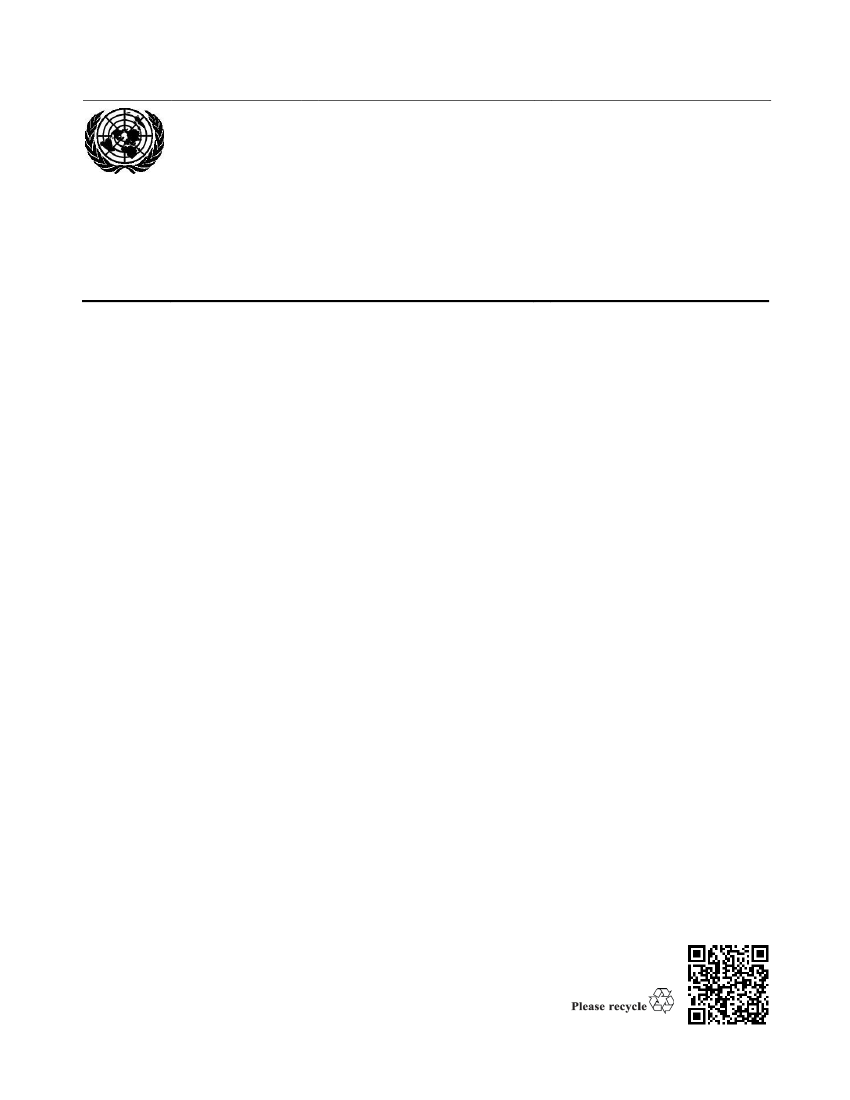
United Nations
A
/68/970
Distr.: General
12 August 2014
Original: English
General Assembly
Sixty-eighth session
Agenda items 14, 19 (a) and 118
Integrated and coordinated implementation of and follow-up
to the outcomes of the major United Nations conferences and
summits in the economic, social and related fields
Sustainable development: implementation of Agenda 21, the
Programme for the Further Implementation of Agenda 21
and the outcomes of the World Summit on Sustainable
Development and of the United Nations Conference on
Sustainable Development
Follow-up to the outcome of the Millennium Summit
Report of the Open Working Group of the General Assembly
on Sustainable Development Goals
I.
Letter of transmittal dated 1 August 2014 from the Permanent
Representatives of Hungary and Kenya to the United Nations
addressed to the President of the General Assembly
In our capacity as Co-Chairs of the Open Working Group of the General
Assembly on Sustainable Development Goals, further to the progress report
submitted on 23 July 2013 (A/67/941) and pursuant to paragraph 248 of the
outcome document of the United Nations Conference on Sustainable Development,
entitled “The future we want” (resolution
66/288,
annex), as agreed by the Open
Working Group by acclamation at the 2nd meeting of its thirteenth session, on
19 July 2014, we have the honour to submit herewith the proposal of the Open
Working Group on sustainable development goals, for consideration and appropriate
action by the General Assembly.
We also attach hereto a record of the proceedings of the Open Working Group
at its first to thirteenth sessions, including reference to the statements made at
the closing meeting, on 19 July, and those subsequently submitted in writing. Taken
together, the proposal on sustainable development goals and the record of
proceedings constitute the report of the Open Working Group to the General
Assembly.
14-59106 (E)
*1459106*
050914